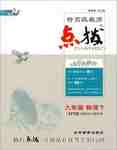题目内容
We still have the question of ________ they have discovered the trade secret.
A. whatB. whyC. howD. that
练习册系列答案
 特高级教师点拨系列答案
特高级教师点拨系列答案
相关题目
题目内容
We still have the question of ________ they have discovered the trade secret.
A. whatB. whyC. howD. that
 特高级教师点拨系列答案
特高级教师点拨系列答案